If you are raising baby chicks you will, at some point, have to deal with pasty butt in chickens. While pasty butt can be gross, it can be easy to treat.
Pasty butt is essentially a build up of fecal matter (poop) that gets stuck to the chicks vent. This will clog their vent to the point they cannot relieve themselves and can be deadly. However, treatment for pasty butt is fairly simple - it just takes some warm water.
Below we will detail what pasty butt is, what causes it and how to treat and prevent it. This way you will be able to keep your chicks happy and healthy.
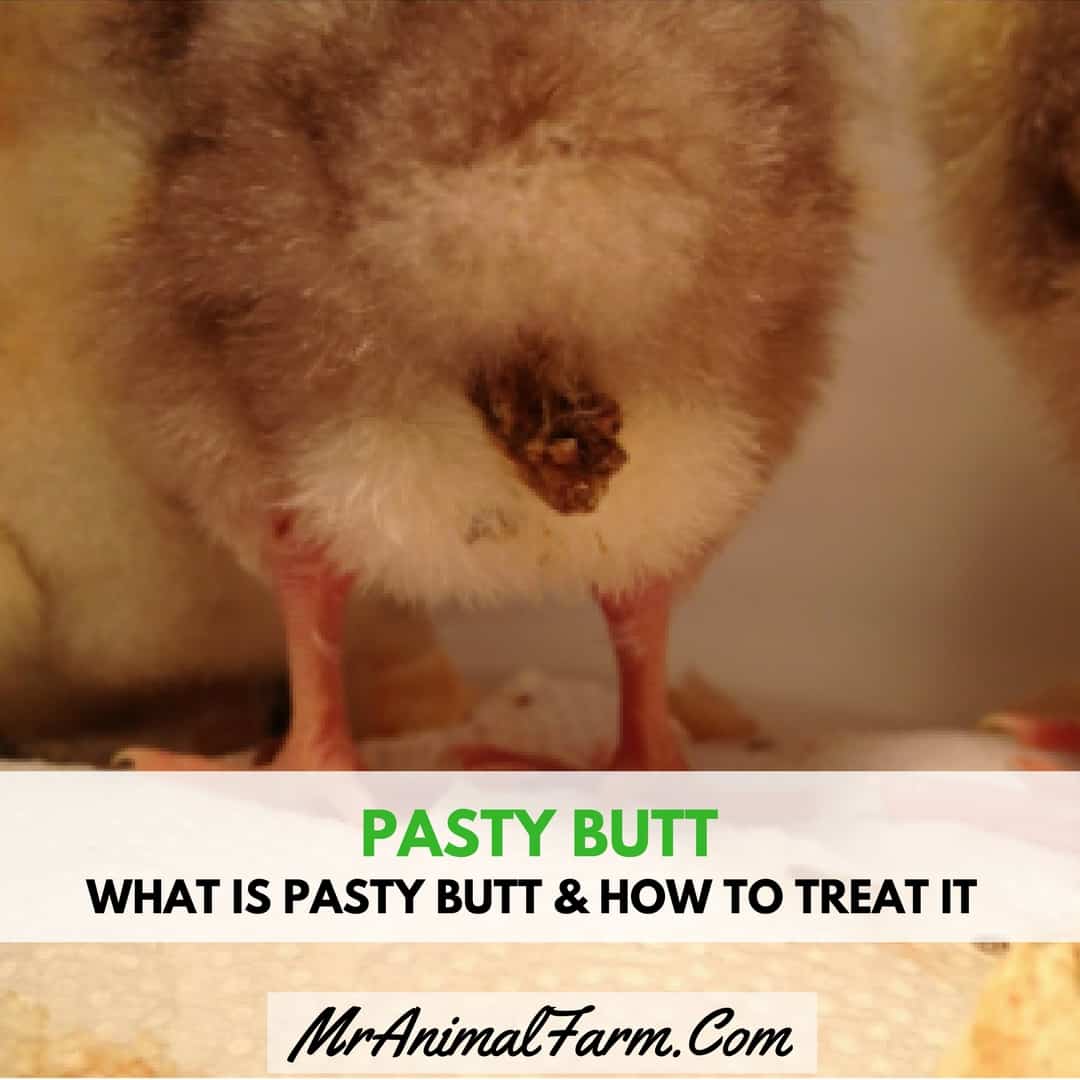
What is Pasty Butt in Chickens
Pasty butt is sometimes also called pasting up or pasted butt/vent. It is basically a build up of poop on the chicks rear end that will cover it's vent. It is a common issue in chicks, but not so much as they get older.
If you aren't familiar with all of your chicken terminology, the chickens vent is the hole where it relieves it self (poop, pee and eventually eggs if it is a hen).
When your chick has poop that builds up back there it can pretty quickly block the vent opening. Once their vent is blocked it will prevent the chick from relieving itself. Not being able to excrete waste will lead to a build up of toxins in the chicks body. If left unattended, it can kill the chick.
One important note is that if you have a very newly hatched chick, sometimes their umbilical cord will still be attached. It will be a dried, dark looking spot - don't confuse this with their vent area. The vent is directly under their tail feathers.
Being able to spot and take care of pasty butt in chickens is an essential part of keeping your chickens healthy.
What Causes Pasty Butt and How to Prevent it?
Pasty butt can be caused by a variety of different things. Such as:
- Stress
- Temperature Changes
- Feed changes/Treats
If chicks get chilled or overheated, these temperature changes can trigger pasty butt. Therefore it is important to keep your chicks at both the right temperature and also to keep that temperature stable. If they have big swings just that change can cause pasty butt.
Temperatures should start at 95 degrees and decrease 5 degrees per week. Also watch chick behavior to see if they are panting and spread out (too hot) or inactive and piled on top of one another (too cold). And always adjust your temperatures based mostly on their activity.
Stress can also be a cause for the poop to build up. So, make sure that your chicks are not getting picked on and that they have a clean and calm brooder with adequate food and water. Keeping their stress level down will help ensure they stay healthy and avoid other issues.
Feed changes and treats can affect your chicks poop. It can cause diarrhea and other poop issues when you give your chicks a bunch of different foods and treats. This poop can then start to build up and become an issue. So, it is best to give your chicks one chick friendly feed.
You can't always prevent pasty butt even when you try your best. However, there are a few things that you can do to help prevent it.
- Keep Temperatures Stable
- Do not chill or Overheat Chicks
- Decrease Stress for Chicks
- Provide Probiotics to help their tummies
- Provide high quality chick feed
- Do not give too many different types of treats
Need some help keeping your chickens health and care taken care of? Check out the Organized Chicken Keeper for an easy to follow system.
How to Treat Pasty Butt:
Like other chick health issues such as curled toes and splay leg, treatment for pasty butt is really simple. It only takes a few minutes and a paper towel wet with warm water (using cold water may chill the chick and cause more pasty butt later).
1. Identify the Issue
You will want to regularly check your chicks to make sure that their vents are clean and clear. Usually a simple glance at their rear ends and you can see if they have poop build up on their vent area.
However, occasionally the poop area won't be super big, or a chick will be extra fluffy and it is more difficult to see. So, it is best to gently pick each chick up once or twice a day and turn them around so you can check their vent close up.
If they have a solid, dark spot of dried poop on their rear end, this is pasty butt and you will need to treat it.
2. Hold the Chick
First things first, you'll need to get a good grip on the chick with one hand. Hold it securely as it will feel a little uncomfortable during the process (I mean, wouldn't you?)
Do this with one hand because you will need the other hand free for cleaning.
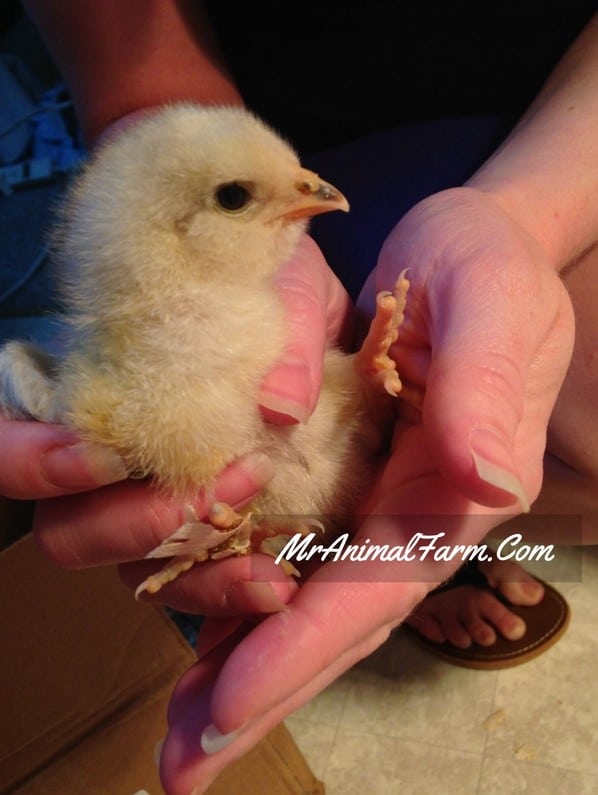
3. Time for the pre-soak
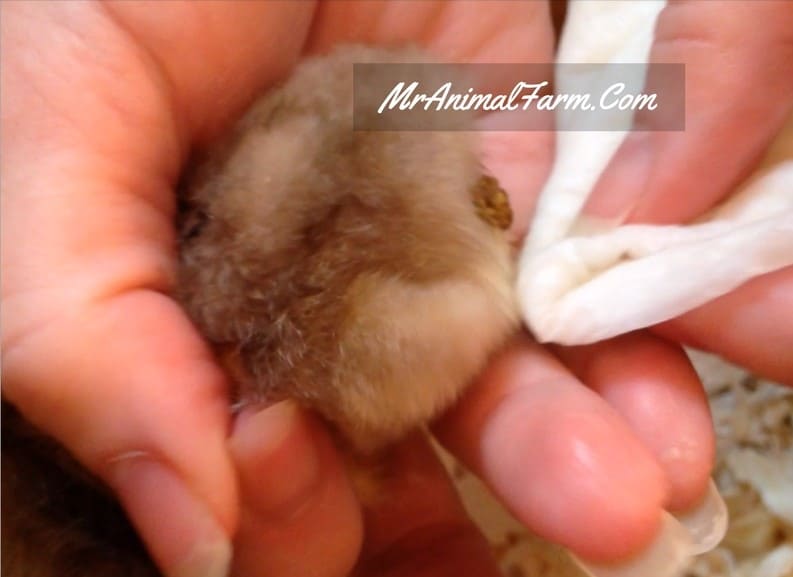
Get a paper towel, fold it and then wet it with warm water. You want it to be fairly saturated with water, but not so much that it is dripping everywhere.
Kinda like doing laundry only crappier (see what I did there?) Gently wipe and drip the warm water and paper towel onto it's rear end to loosen up the built up poop.
You can also try to soak the water directly into the dried poop.
Just make sure that you are getting the water on as small of an area as possible and that it stays warm. Chicks can get chilled easily and stress and being chilled can lead to more pasty butt.
4. Soak
Let the water sit for a moment to really break down the poop. After a minute or so, the poop will loosen up and wipe off.
5. Deep cleaning
If it is really bad and dried, you may need to try and loosen it up some with the paper towel between your fingers.
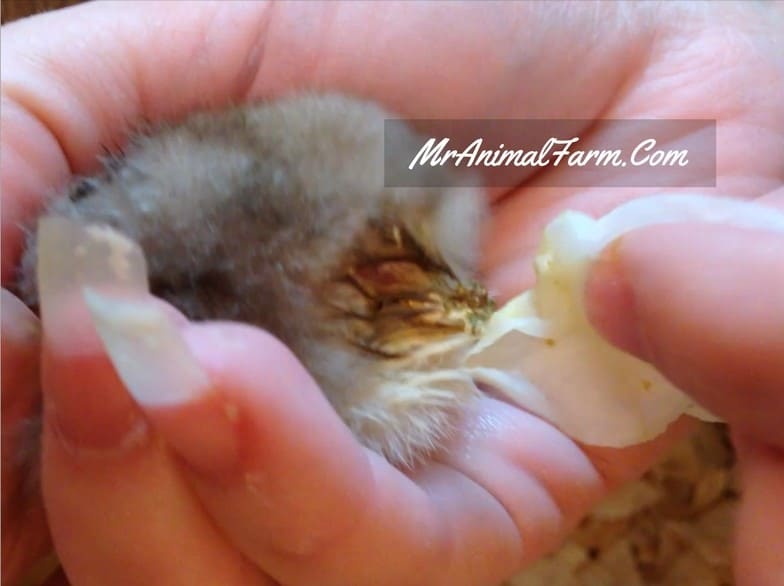
However, make sure not to pull too much as you can pull out their down and/or rip their thin skin. This part can be a little tedious, but your little chick will be super thankful later when they still have a fluffy butt.
Make sure to be as gentle as possible. But you want to get all of the poop removed from the area and it may take a little work to get this done.
6. Clean up
Generally, we will just clear their vent area and leave some of the poop on if they have a lot of build up. The reason for this is because we don't want them to catch a chill and get more pasty butt later. But make sure that their vent is completely cleared.
We try to interfere as little as possible to let these things work themselves out on their own. But when that isn't an option, we step in to lend a helping hand.
If you had to use a lot of water, you may want to help your chick dry off by drying them with a towel or a blow dryer (be sure to not get them too hot).
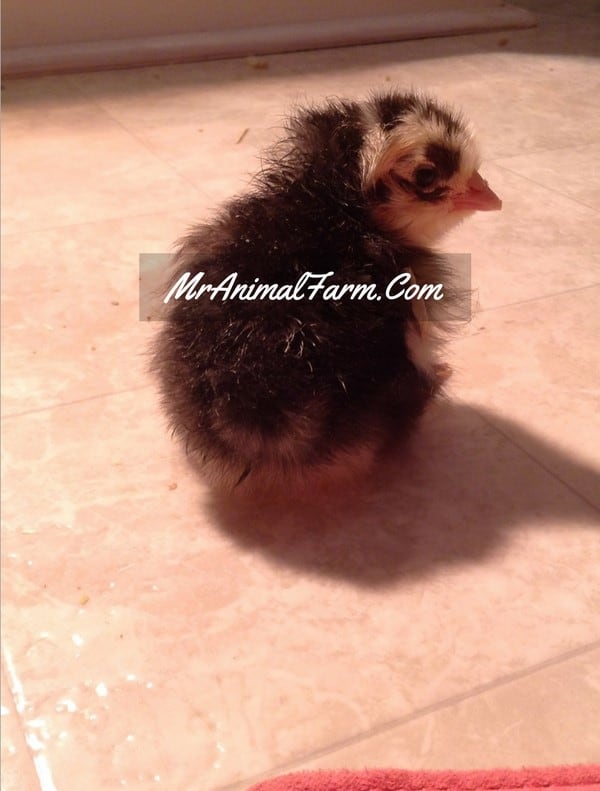
7. Recheck
You will want to check the chicks at least a few times a day (more often if possible) to make sure they don't get more pasty butt built up. We find that it usually takes a few days for the pasty butt to clear up.
If chicks have pasty butt, you can also add some vitamins and electrolytes and/or probiotics to their water to help them stay happy and healthy.
Interested in how to treat other chick issues? Check out this raising chickens eBook or this raising chickens eCourse!
If you need more help with taking care of your chickens, check out The Organized Chicken Keeper for a complete system for managing their health through keeping their supplies stocked and coop clean.
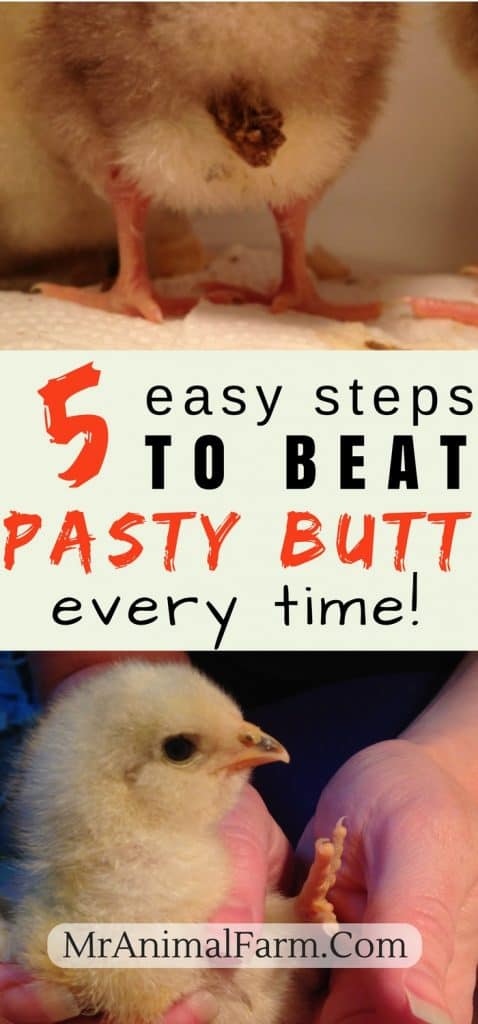

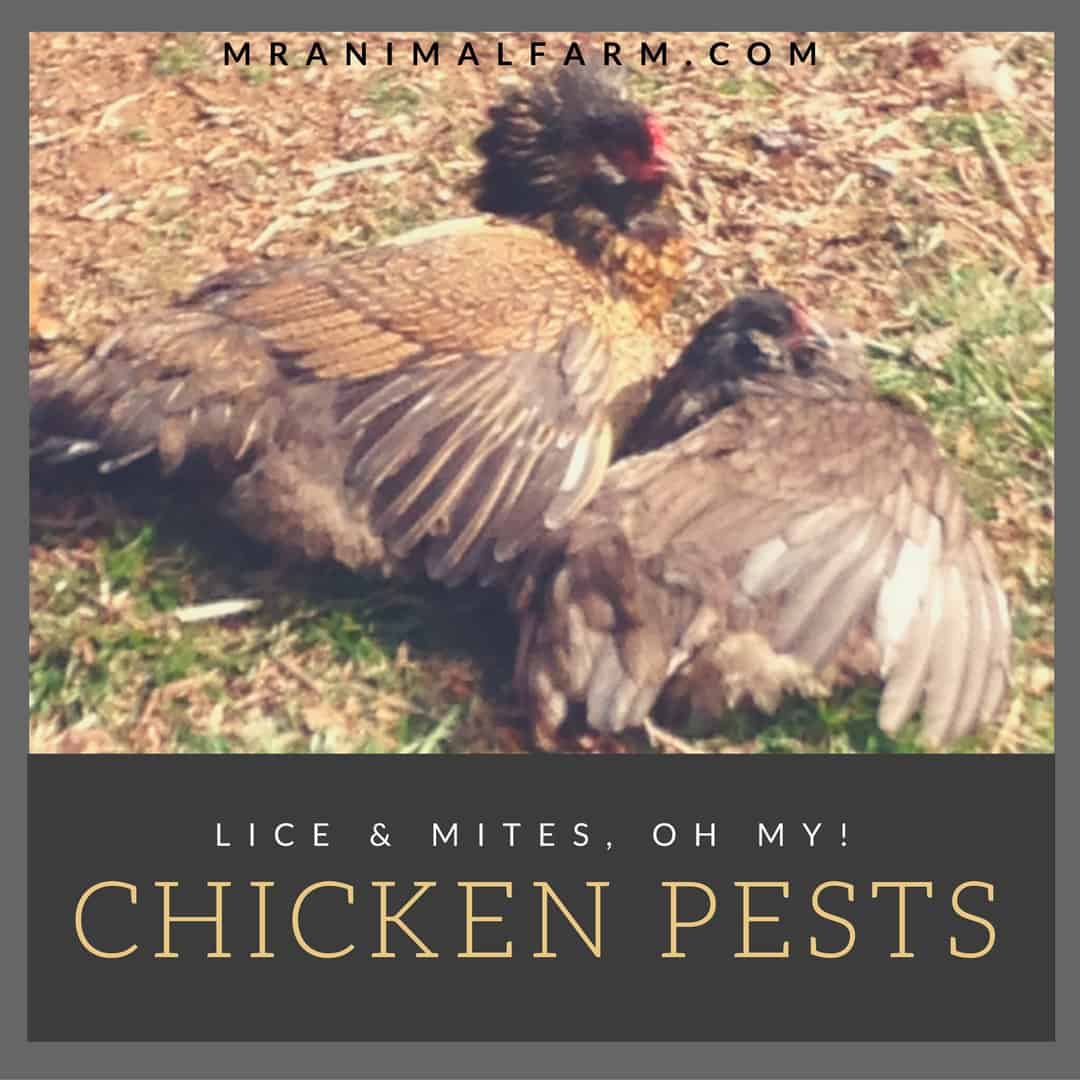
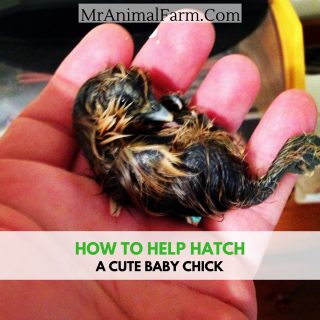
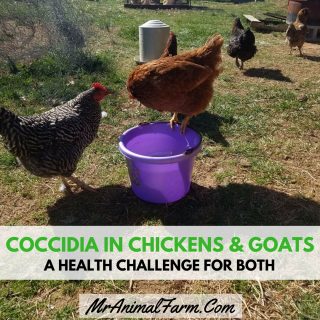
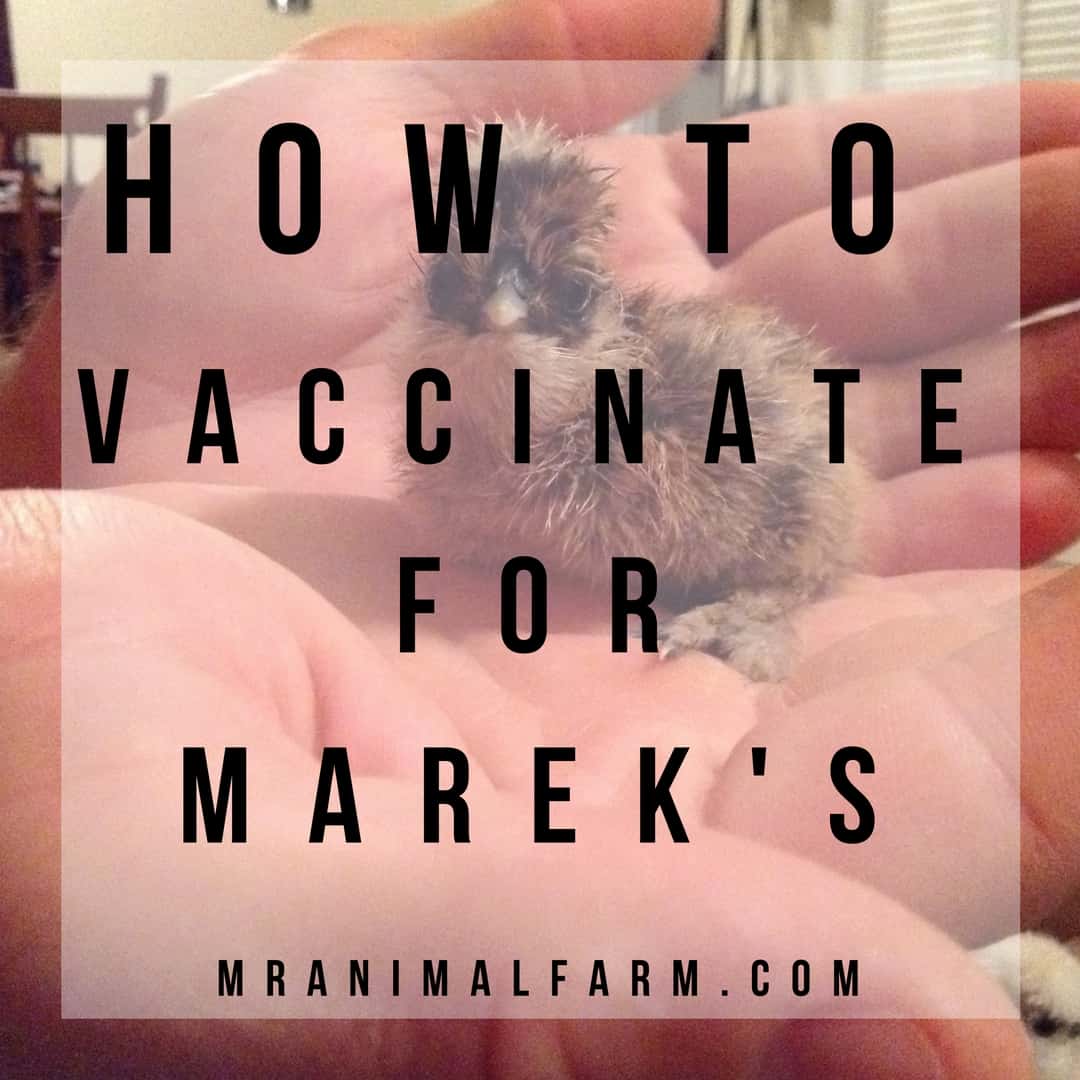
Bashir says
Thanks for sharing this useful tips!
Valerie says
We are a retired couple who have raised 5 children while working in the rat race We now raise + 20 various breeds of layers, meat birds and a couple of pigs each year. We are prolific veggie gardeners and we are hoping to add registered Nigerian dwarf goats to our farm next year. We farm in central BC, Canada. Zone 2b for gardens.